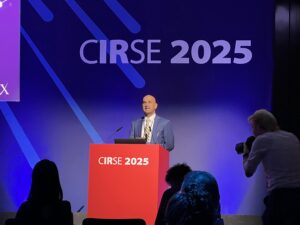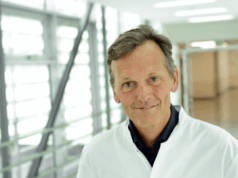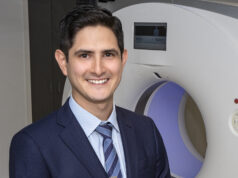
An interim analysis of the DOORwaY90 clinical trial has shown that yttrium-90 (Y-90) resin microspheres—SIR-Spheres (Sirtex)—using partition dosimetry, achieved high objective response rates and durable tumour control in patients with unresectable and unablatable hepatocellular carcinoma (HCC).
Presenting the results at the Cardiovascular and Interventional Radiological Society of Europe (CIRSE) annual congress (13–17 September, Barcelona, Spain), principal investigator Srinivas Cheenu Kappadath (MD Anderson Cancer Center, Houston, USA) described the DOORwaY90 clinical trial as the first pivotal, prospective, multicentre, open-label, single-arm study in the USA to investigate SIR-Spheres with partition dosimetry as a first-line treatment for unresectable and unablatable HCC. The trial enrolled 100 patients between May 2021 and August 2024, with data cutoff for this interim analysis set at 30 October 2024.
At six months, the objective response rate was 98.5%, including a 92.2% complete response rate, as assessed by independent core laboratory review using modified RECIST criteria. Duration of response greater than six months was achieved in 76.7% of patients, with investigators noting that this figure is likely underestimated due to inclusion of patients who withdrew from the study, died, or underwent transplantation. The median duration of response exceeded 300 days, and no local tumour progression was observed at 12 months.
Sixteen patients proceeded to curative treatment during follow-up—15 to liver transplantation and one to surgical resection—with a median time of 10.5 months from Y-90 treatment to liver transplantation.
Safety analysis across the 100 treated patients showed most adverse events were grade 1–2, with 15% grade ≥3. Four serious adverse events were considered device- or procedure-related, which included two reports of abdominal pain, one of nausea, and one of non-fatal radiation-induced liver disease. Notably, over 95% of patients maintained stable liver function, and no cases of radiation pneumonitis were reported.
Following the presentation, discussants highlighted the high complete response rates and durability of tumour control, even in patients with tumours up to 10cm in summed diameter. Session moderator and interventional radiologist, Stephen Kee, noted: “If you can get a 90% complete response rate in unresectable HCC, it is superb, regardless of methodology.”
Importantly, investigators reported that the strength of these interim results supported US Food and Drug Administration (FDA) approval of SIR-Spheres with partition dosimetry as a first-line therapy for unresectable HCC, thereby expanding the treatment indication in the USA.










